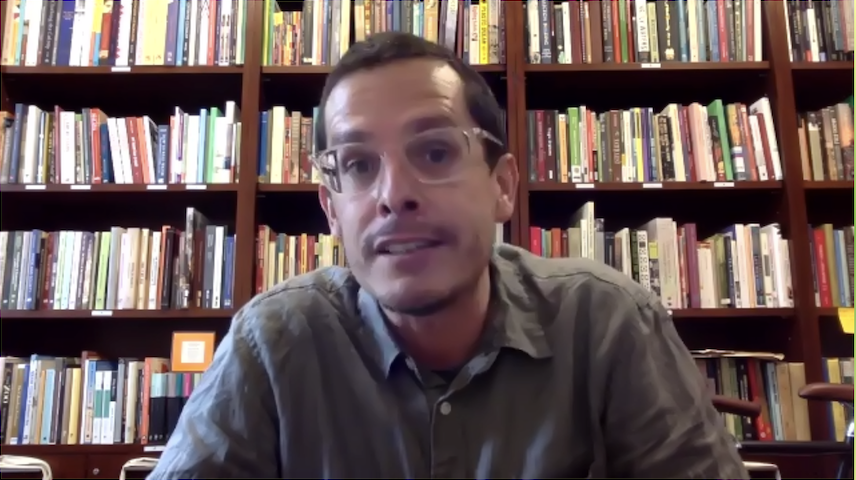Yale-NUS College organises workshop on Asia’s wet natures
At Yale-NUS College, students and faculty members regularly gain insights through active collaboration with other esteemed scholars and academics across the world. One such example is Asia’s Wet Natures: Past, Present, and Future, a workshop which took place from 28 to 29 October 2021. Organised by Yale-NUS College with the support from the Asia Research Institute at the National University of Singapore (NUS) and NUS Libraries, this series of panel discussions explored Asia’s watery pasts and its aqueous horizons.
When asked about the motivations behind this workshop, Assistant Professor (Environmental Studies) Anthony D Medrano, one of the co-organisers of the workshop, cited “growing academic interest in situating Asia and its wet natures within the environmental humanities and a growing public interest in knowing more about Asia’s wet history, from Kolkata’s tidal creeks and Mumbai’s river systems to Singapore’s kelongs and Banda’s corals.” He also shared that there is growing institutional interest in interdisciplinary, international, and collaborative research projects that draw on and bring together a wide array of experts.
The workshop featured a wide range of topics on Asia’s wet natures in different cities and regions, with historians, geographers, scientists and artists from universities all over the world (e.g. University of California, Riverside, University of Cambridge and the University of Toronto) joining the discussions. The topics and the panels were borne out of two earlier conferences: the East Asian Environmental History Conference (Kyoto 2021) and the International Convention of Asia Scholars (Kyoto 2021). Additional contributors were identified through the scholarly networks of the co-organisers, Asst Prof Medrano and Assistant Professor Chitra Venkataramani from the Department of Sociology at NUS.
One of the highlights of the workshop was the session led by David Biggs, Professor of History from the University of California, Riverside. Titled “Saigon’s Swamp: Exploring the Wet City and Its Mangal Architecture”, Prof Biggs examined the importance of mangroves in understanding the history of Ho Chi Minh City. “When we look at climate change and issues of resilience, it is important to understand that these issues are not just modern creations. In a sense, the modern cities have been built out of a much older set of negotiated waterfronts, and this is particularly true in Saigon,” he shared.
Fascinating insights were also shared at the session hosted by artist Juria Toramae, who is based in Singapore. Titled “Pelagic Dreams”, she encouraged the audience to reimagine species in the oceanic world through artificial intelligence, or what is known as generative adversarial networks (GANs), where unsupervised machine learning is trained to process patterns in existing species so as to generate previously unseen life forms. “Through Pelagic Dreams, I was imagining a way to visualise agency for the sea itself, where we could move forward and collaborate with other species rather than affecting their lives,” she said.
Asst Prof Medrano was grateful to the team who organised the event and made it a success. “The whole experience was wonderful and would not have been possible if it were not for the fabulous support of Yale-NUS College’s strategic events team. We also received tremendous support from our panel moderators: Kathy Poh (Class of 2020), Inez Alsagoff (Class of 2021, NUS), Faris Joraimi (Class of 2021) and Misaki Tan (Class of 2023),” he said. Asst Prof Medrano is hopeful about the prospects of organising similar events in the future, especially in the area of interdisciplinary research and collaboration. “Topics in the social sciences and humanities were really well-represented in the workshop. Perhaps a future iteration can bring in more biologists, ecologists and meteorologists to generate new ways of thinking,” he shared.
 Asst Prof Medrano giving his closing remarks. Image provided by Zhu Wentao.
Asst Prof Medrano giving his closing remarks. Image provided by Zhu Wentao.
Click here to watch video recordings of Asia’s Wet Natures: Past, Present, and Future.





